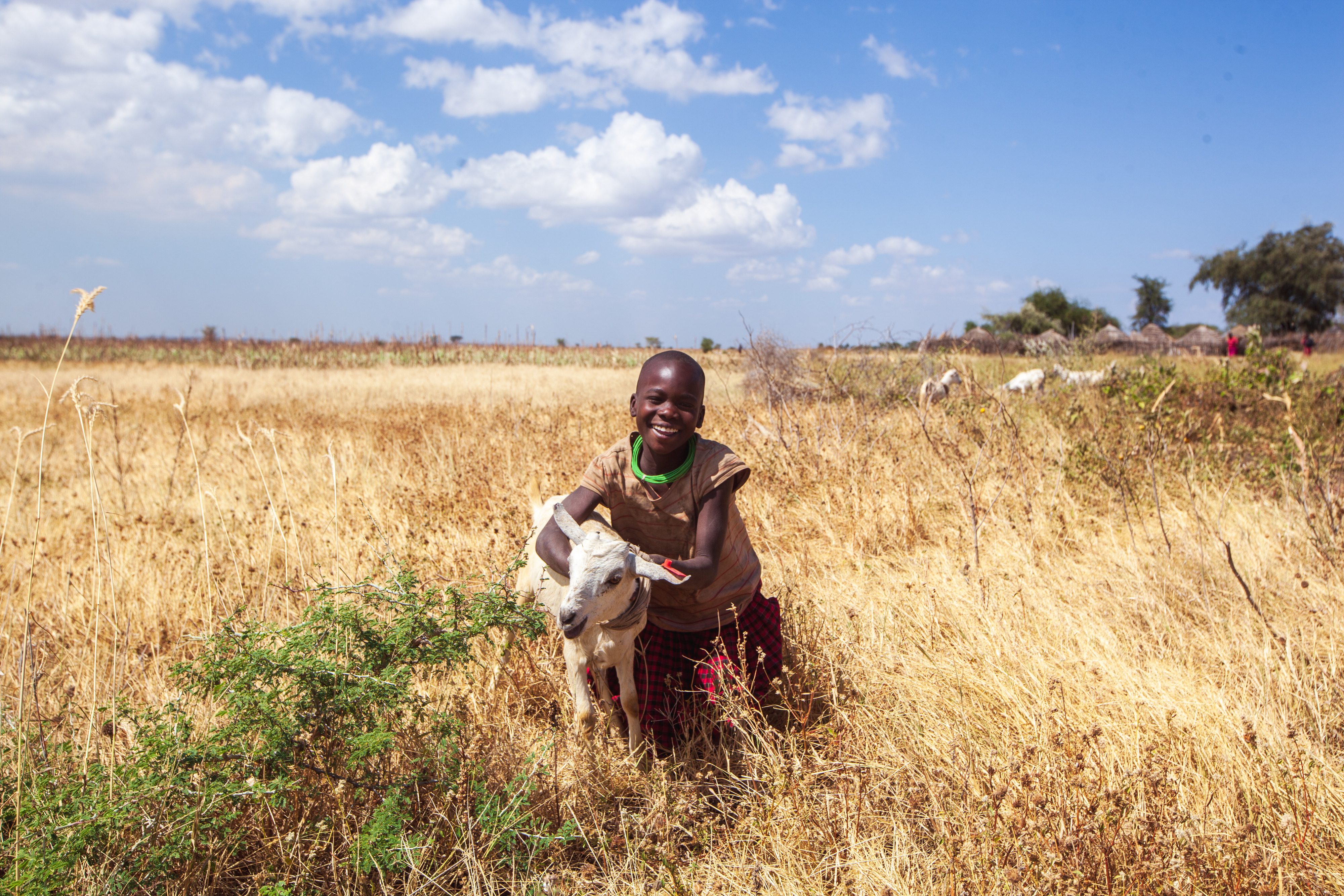With goats, mothers in Uganda can provide their children with goat's milk and thus sufficient nutrient-rich food. Families affected by the hunger crisis receive support and can sustainably prevent malnutrition in their children.
Goats help mums care for children
In Northeast Uganda, mothers are getting the support they need to address stunting among their children.
A Save the Children livelihood project we are providing mothers with actual goats to milk, which helps provide nutritional and food supplements to support their family’s diet.
In the communities of Karamoja, malnutrition and food insecurity are at the highest levels in Uganda due to inadequate food, poor dietary diversity, inadequate hygiene and sanitation, and disease. Around 35 percent of children younger than five years are stunted due to chronic malnutrition. A child suffering from stunting and malnutrition has a poorer immune system, putting them at risk of life-threatening diseases. Their brain function and organ development are affected, which can limit their quality of life in the future.
Mums receive goats and seeds
To help reduce food insecurity and stunting among these children, we distributed over 500 goats to around 250 families. These families received two goats, to be able to produce goats milk. They also received training on goat husbandry including housing, feeding, watering, disease and parasites management, breeding and marketing basics. The goats provide a way for the women to earn an income and to learn practical livelihood skills.
Jennifer, one of the mums, says, „Thank you Save the Children for the goats that you have given to us, because these goats are going to produce for us milk. And we shall sell the milk in order to get some little money that we can use to support our children by buying books for them.”
The women also received seeds to grow vegetables and promote healthy eating within their families. Among the seedlings were cowpeas, amaranth (a highly nutritious plant locally known as doodo), onions and pawpaw fruit trees. Jennifer tells us: „These seeds we have produced our vegetables. We are now able to change our diet.”
Working with community to address food insecurity
Through dialogues and other innovative approaches with the community, our teams are working directly with the families and local cultural leaders to implement the project. The aim of the project is to contribute towards improved access to nutritious and safe food for agropastoral households in the sub-region. We estimate this will benefit over 3’700 households with pregnant and lactating mothers, and those with children under 5 years – the critical age for addressing malnutrition.
